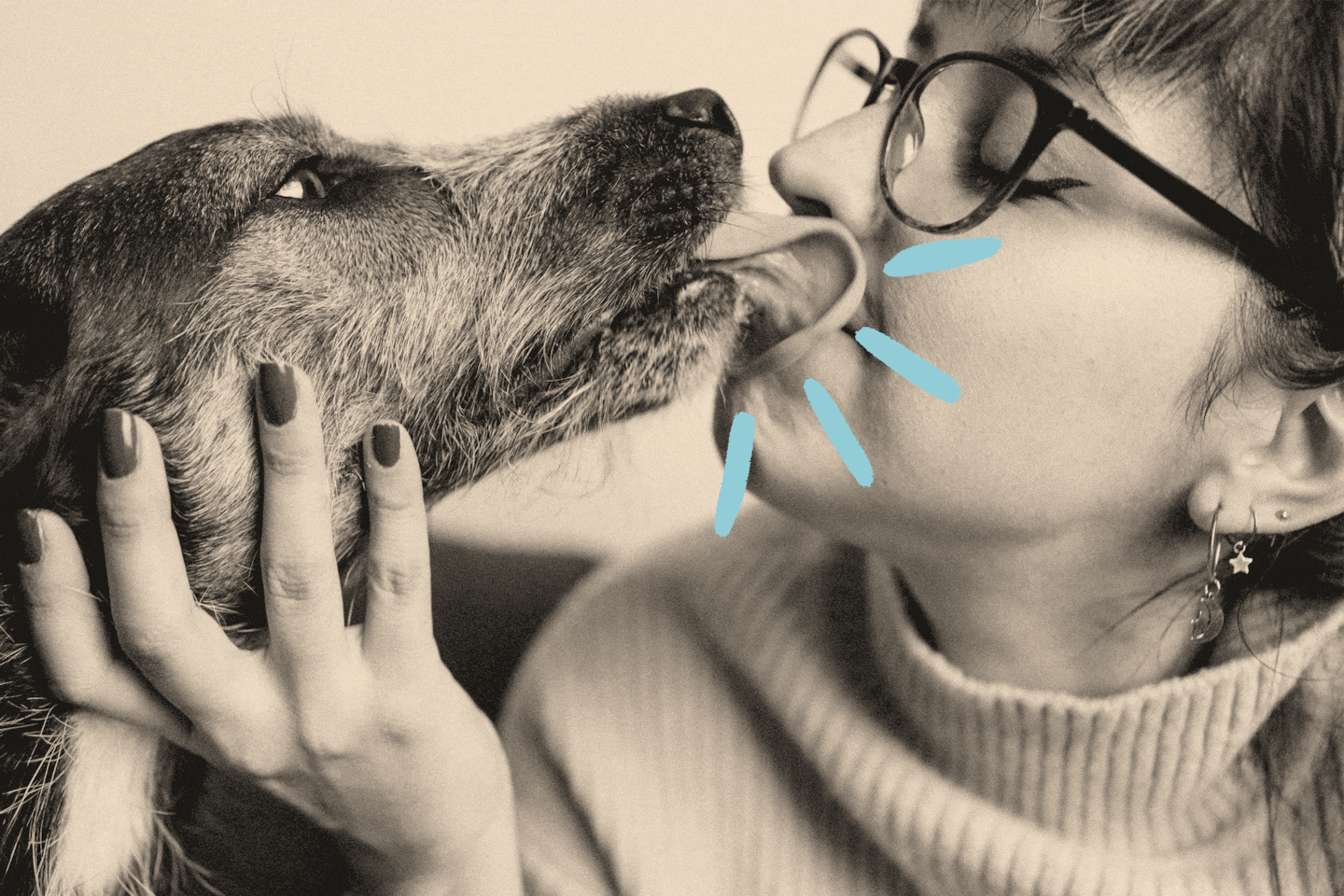Infection
Advice | Is it safe for your dog to lick your face?
Q: My dog often tries to lick my face. Should I allow it? What are the health risks?
A: The odds of getting sick from a friendly lick across the face are very low. But the fact is that all dogs will be dogs from time to time — that is, chomp down on goose poop by the sidewalk, lick their nether regions multiple times a day and bring home the odd dead critter. That’s the same mouth you’ll be getting up close and personal with.
So there are good reasons the official answer from many experts is “don’t do it,” especially for people who are immunocompromised. Infections acquired from pets are likely underestimated and underrecognized due to general, flu-like symptoms that tend to resolve on their own.
Serious bacterial infections from a dog lick have been described in the medical literature. For example, a rare but potentially deadly pathogen — Capnocytophaga canimorsus — can be especially risky for the elderly, those who consume a lot of alcohol or among those who are immunocompromised, such as those without a functional spleen.
Capnocytophaga infections are most common after a bite, but can occur without getting bitten.
While these risks sound scary, it’s important to remember that they are extremely rare, said Sonya Krishnan, an infectious diseases specialist at Johns Hopkins University School of Medicine.
Some researchers have estimated the incidence rate of Capnocytophaga sepsis to be around 0.5-0.7 cases per 1 million people per year. And as Krishnan pointed out, that’s around the same odds as getting struck by lightning.
How can I reduce my risk?
Even if you do follow the expert advice, there may be times when your dog will just go for it mid-snuggle and catch you unaware. To reduce the chance of issues, keep your dog up to date on their vaccines, such as rabies, said Krishnan. (Getting rabies from a dog in the United States is also very unlikely.)
“Your skin provides a strong barrier to bacteria entering and causing infection, so there is little risk of infection if a dog licks your skin,” Krishnan said. However, keep your pup away from open wounds, she added, such as pimples and cold sores. It’s also safest to avoid mucous membranes such as your mouth, nose, or eyes.
It should go without saying, but getting licked by a stray or unfamiliar dog is a worse idea than letting the family dog lick you.
And another concern with bringing your face near any dog is biting.
We’d all like to believe our own sweet pupper could never be so guilty. But one study of about 1,300 children treated for dog-bite injuries found that 37 percent of those admitted to the hospital were bitten by a family dog.
Most dog bites among older children and adults occur on the hands or lower limbs but can happen more frequently to young children on the head and neck. Because of this, it’s critical not to leave infants or young children unattended with the family dog to avoid injury, even if accidental.
If you or your children get bitten by a dog — yours or someone else’s — clean the area thoroughly and immediately call your doctor. In certain cases, they may prescribe prophylactic antibiotics or, with serious injuries, need to repair the wound surgically.
Perks of pup snuggles
None of this is to say that you shouldn’t fully bask in the joys of loving your dog. Many studies have found that living with a dog has health benefits, including alleviating loneliness and enforcing exercise through daily walks. For many people, dogs are what got us through the pandemic amid so much pain and loss — myself included.
Possible immune protection may be especially strong in childhood, as studies have shown that babies living with dogs in the home are less likely to develop food allergies and respiratory symptoms and infections.
Plus, when we bond with our dogs, the owner and the pet both get a boost of oxytocin — the “love hormone.” This can occur after petting or talking to our dogs. No licking required.
What I want my patients to know
Make sure you take care of your pet as an extension of taking care of your own health. Even the sprightliest pup needs preventive health screens just like a human does: After all, our states of well-being are connected. It’s important to get your dog’s stool tested regularly, give them an anti-parasitic medication monthly and familiarize them with having their teeth brushed regularly with some canine toothpaste. If you have any concerns or questions, check in with your veterinarian.
Meet the doctor: Trisha Pasricha is a physician at Massachusetts General Hospital, an instructor in medicine at Harvard Medical School and a medical journalist.

